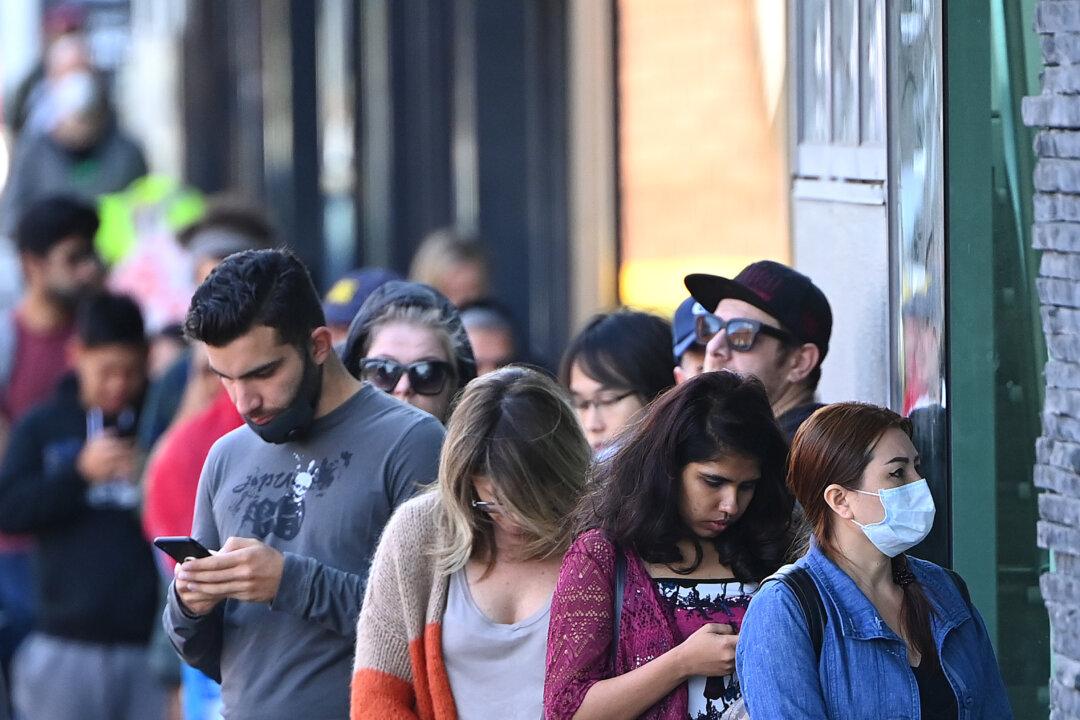Australian Treasurer Josh Frydenberg has warned Australians to expect a significant rise in the unemployment rate alongside a big reduction in the rate of economic growth as a result of the CCP (Chinese Communist Party) virus.
“That’s a reflection of the queues we have seen outside Centrelink and that is the reflection of the health restrictions that have had a severe economic impact,” he told the ABC’s Insiders television program on April 12.





